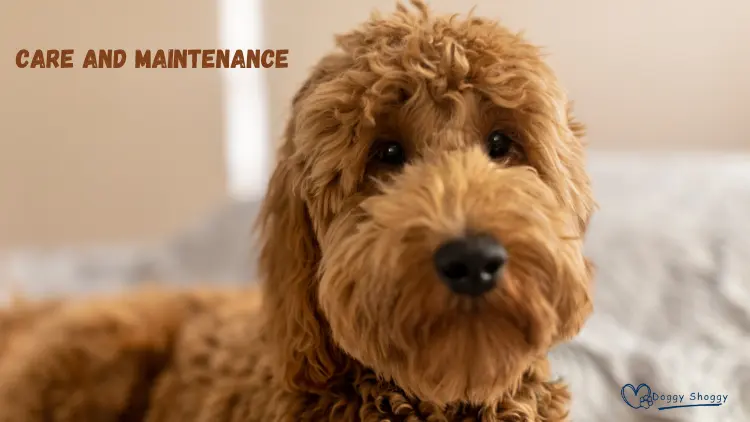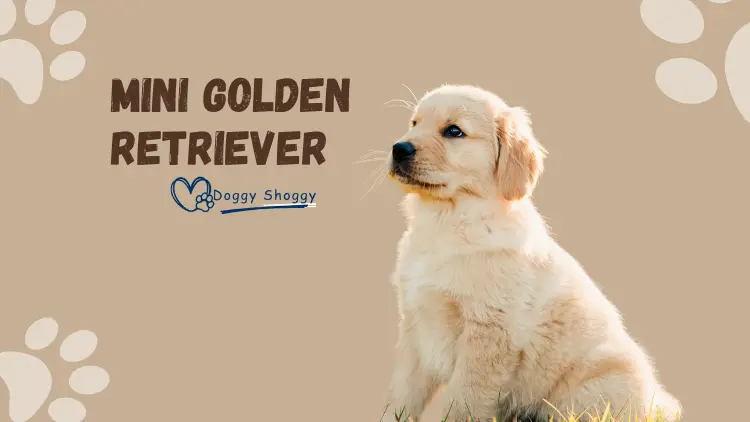Mini Goldendoodle: Things You Need To Know
The Miniature Goldendoodle, a delightful hybrid breed resulting from the cross between a Golden Retriever and a Miniature or Toy Poodle, has captured the hearts of dog lovers worldwide. This designer dog is celebrated for its adorable appearance, friendly demeanour, and low-shedding coat, making it an ideal companion for various households.
Table of Contents
Breed Overview
Standing between 13 to 20 inches tall and weighing 15 to 35 pounds, Mini Goldendoodles exhibit many coat colors, including black, white, silver, brown, blue, red, parti, sable, cream, tan, apricot, and merle. Their lifespan typically ranges from 10 to 15 years, during which they become cherished family members due to their loving, loyal nature and ease of training.

| Characteristic | Description |
|---|---|
| Height | 13–20 inches |
| Weight | 15–35 pounds |
| Lifespan | 10–15 years |
| Colors | Black, white, silver, brown, blue, red, parti, sable, cream, tan, apricot, merle |
| Suitable for | First-time pet owners, families with kids, active owners |
| Temperament | Loving, loyal, hypoallergenic, easy to train, gentle, outgoing, playful |
Temperament and Personality
Mini Goldendoodles inherit their gentle and friendly temperament from their Golden Retriever parent, coupled with the intelligence and playfulness of the Poodle. They are known for their sociability and outgoing nature, often turning a routine walk into a social event with their penchant for meeting new people and animals.
These dogs thrive on human interaction and are eager to please, which makes them well-suited for families, including those with children. They exhibit patience with younger family members and generally get along with other pets, owing to their laid-back demeanour and gentle disposition.
Care and Maintenance
Owning a Miniature Goldendoodle requires specific care to ensure their health and happiness.

Diet and Nutrition
A balanced diet is crucial for the health of Mini Goldendoodles, requiring approximately 1 to 4 cups of high-quality dry food per day, depending on their size, age, activity level, and metabolism. It’s important to monitor their food intake to prevent obesity, a common issue in the breed, and to address potential digestion problems such as bloat, which improper feeding habits can exacerbate.
Exercise Needs
Despite their smaller size, Mini Goldendoodles are energetic and require regular exercise to maintain their physical and mental well-being. Daily walks, play sessions, and opportunities for swimming are recommended to fulfil their activity needs and prevent boredom-induced behaviours such as excessive barking or destructive chewing. Providing a fenced yard where they can safely play and explore benefits their overall health and happiness.
Training and Socialization
Miniature Goldendoodles are highly trainable, thanks to their intelligence and eagerness to please. Positive reinforcement methods, such as rewards and praise, effectively teach them obedience and good manners. Early socialization is crucial to help them develop confidence and adaptability in various social situations, ensuring they grow into well-rounded adult dogs.
Grooming Requirements
One of the standout features of Mini Goldendoodles is their low-shedding coat, which requires regular grooming to prevent matting and maintain its health and appearance. Daily brushing is recommended to remove tangles and debris, especially for dogs with longer coats. While they do not require frequent baths, regular grooming sessions should include ear cleaning, nail trimming, and dental care to prevent issues like ear infections and dental disease, common in breeds with floppy ears and smaller sizes.
Health Considerations
While generally healthy, Miniature Goldendoodles may inherit genetic conditions from their parent breeds, including:
Hip Dysplasia: A condition where the thighbone doesn’t fit snugly into the hip joint, leading to pain and discomfort.
Von Willebrand’s Disease: A blood disorder that affects clotting, potentially causing excessive bleeding.
Cancer: Certain types of cancer, including those common in Golden Retrievers.
Allergies: Food sensitivities, skin allergies, and inhalant allergies can affect some individuals.
Dental Issues: Due to their Poodle ancestry, they may be prone to dental problems, necessitating regular dental care.
Choosing a reputable breeder who conducts health screenings on parent dogs can mitigate the risk of these conditions, ensuring a healthier start for your Mini Goldendoodle.
Choosing Between Male and Female
Temperament and size are typically the main considerations when deciding between a male or female Mini Goldendoodle. While both sexes share similar temperamental traits inherited from their parent breeds, males tend to be slightly larger in height and weight. Personal preference and compatibility with existing pets and family dynamics should also be considered.
Interesting Facts
Types of Mini Goldendoodles
Variations include the Mini English Goldendoodle (English Golden Retriever and Toy Poodle), Mini American Goldendoodle (American Golden Retriever and Toy Poodle), and Mini Australian Goldendoodle (English Golden Retriever and Mini Australian Labradoodle).
Origin
Mini Goldendoodles emerged in the 1990s in America and Australia, gaining popularity as companion animals due to their charming personalities and hypoallergenic qualities.
Generational Differences
Terms like F1 and F1B denote different generations of Mini Goldendoodles, indicating the specific breeding mix. For instance, F1 refers to a first-generation cross between a Golden Retriever and a Poodle, while F1B results from crossing a Goldendoodle with a Poodle.
Final Thoughts
The Miniature Goldendoodle offers a blend of desirable traits from the Golden Retriever and Poodle breeds, making them a beloved choice for families and individuals alike. Their affectionate nature, intelligence, and low-shedding coat make them suitable for various lifestyles, from active families to first-time pet owners seeking a loving companion. By understanding their specific care needs, including diet, exercise, grooming, and health considerations, prospective owners can provide a fulfilling and enriching life for their Mini Goldendoodle, ensuring a lasting bond and companionship for years to come.
Useful and Unique FAQs With Answer
What is a Miniature Goldendoodle?
A Miniature Goldendoodle is a crossbreed between a Golden Retriever and a Miniature or Toy Poodle, known for its small size and friendly temperament.
Are Miniature Goldendoodles hypoallergenic?
Yes, they are considered hypoallergenic due to their Poodle parentage, which typically results in low-shedding coats.
How much exercise does a Miniature Goldendoodle need?
They require at least 30 minutes of daily exercise, including walks, playtime, and activities like swimming.
What is the average lifespan of a Miniature Goldendoodle?
They typically live between 10 to 15 years.
Are Miniature Goldendoodles good with children?
Yes, they are gentle, patient, and good with children, making them excellent family pets.
Do Miniature Goldendoodles bark a lot?
They can be vocal and bark when excited, bored, or alert, but proper training can help manage excessive barking.
What kind of grooming does a Miniature Goldendoodle require?
Regular brushing to prevent matting, occasional baths, dental care, nail trimming, and ear cleaning are necessary.
Are Miniature Goldendoodles easy to train?
Yes, they are intelligent and eager to please, making it relatively easy for them to train using positive reinforcement methods.
Can Miniature Goldendoodles live in apartments?
Yes, they can adapt to apartment living if they get enough exercise and mental stimulation.
Do Miniature Goldendoodles get along with other pets?
Generally, yes. They are friendly and can get along well with other dogs and even cats if properly socialized.

